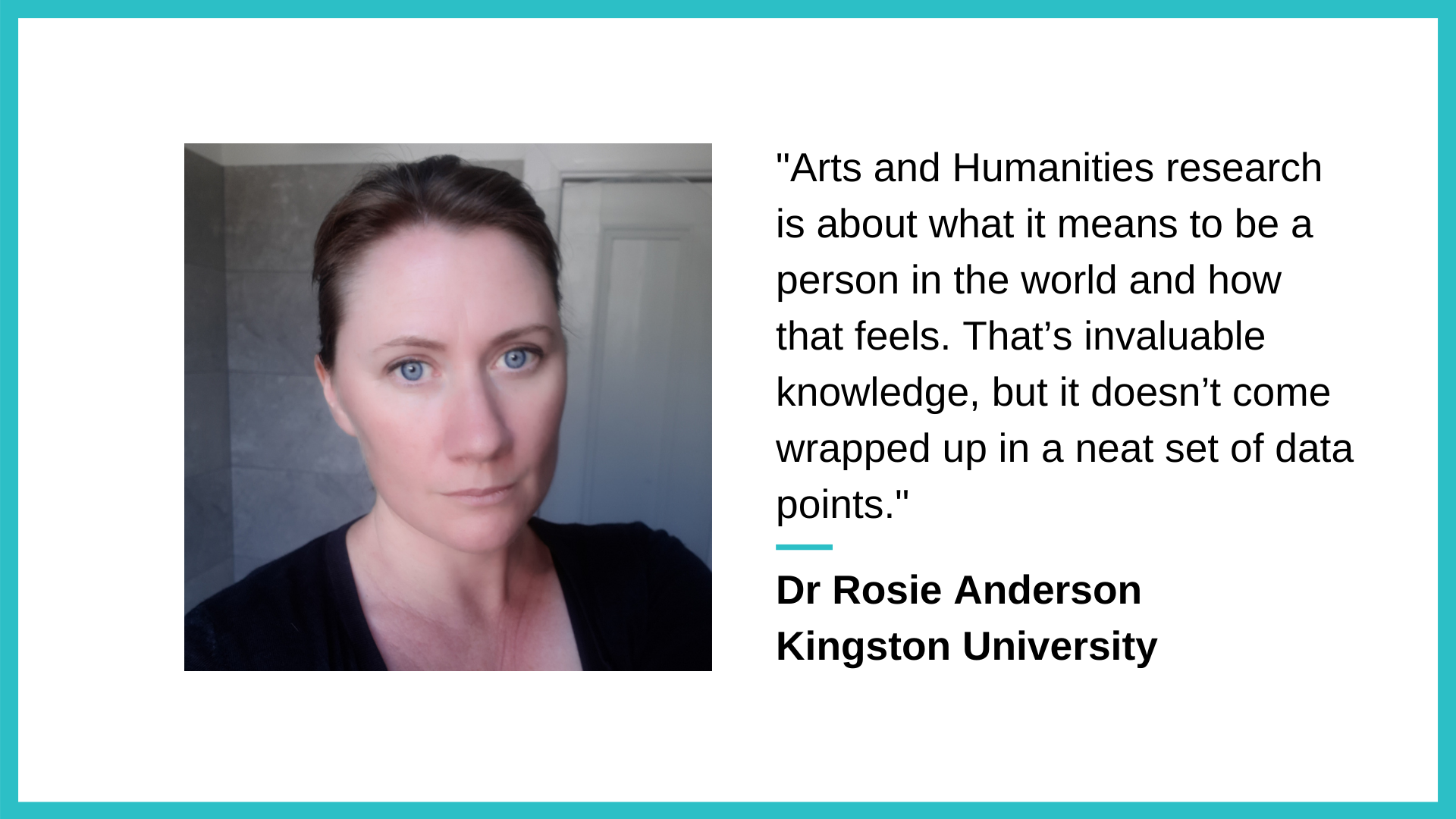Making room for Arts and Humanities in policy
Posted 2020-10-21 10:51:20 by Rosie Anderson, Impact Development Manager, Kingston University

Kingston University reflect on the GO-Science Covid-19 ARI call, and why there was less engagement from the Arts and Humanities than other disciplines.
Disruption is one of those buzzwords that sounds cool until you actually have to live with it. As a veteran of uncountable papers, blogs, webinars and conferences about that abstract, think-tank sort of disruption, I have had a bonanza of the real thing this year.
Speaking personally, the sudden need for expert Covid research advice across every area of Government has been disruptive, but maybe in a good way.
For example, UPEN recently held an open call for Covid-related academic expertise with GO-Science, and I circulated it widely among Kingston University staff. It took the Government’s cross-Departmental Areas of Research Interest (ARIs) as its starting point, with researchers asked to explain how their work mapped to those ARIs. I welcomed this, in part because breaking those research interests down might help my colleagues see the connections between their work and that of Government and Parliament. I got a lot of interest, but the patterns in the responses were revealing.
One thing that surprised me is that the best predictor of who responded to this call wasn’t race, gender or other social characteristics (although there were still disparities), but disciplinary background.
Academics with an arts or humanities background were outnumbered by their peers in the natural and social sciences by just over five to one.
I had the opportunity to ask the relevant faculty’s staff about this at a research meeting soon after. I’ve always suspected I get more uptake from the natural and social sciences for policy opportunities, but here it was in black and white.
My colleagues suggested it was down to the language used in these calls. It leans on a very means-end way of thinking about research. It favours knowledge derived from scientific process and experimentation. It values what is measurable and devalues that which cannot be. We think of “hard” science experiments in this way, but actually most social research has that problem-solution journey in its research design too.
Arts and Humanities research is about what it means to be a person in the world and how that feels. That’s invaluable knowledge, but it doesn’t come wrapped up in a neat set of data points. There’s more work involved to see how it offers answers to specific challenges – proving that is usually not part of the research itself.
If we want arts and humanities researchers to respond to calls within days rather than months then we need to do that translation work for them, in the call itself.
I can relate. Although my own PhD is in Politics, I am an ethnographer. Academically I was a curio: a lot of political scientists are wary of something without a hypothesis and a scientific process. But ethnography – the study of culture – is much in demand in governments and institutions. It sheds light on all sorts of strange and apparently irrational behaviours, including why governments themselves look the way they do.
Open, exploratory, messy research also has a lot to teach policy makers about how to do their work, especially how to work on things when strong feelings are involved. In fact, my colleagues in Art, Design, Drama, Literature etc. often have a body of practice – a portfolio detailing how they did it - as their main research output. I struggle to find space to explore the lessons in arts practice for policy makers.
We need to get better at having conversations across disciplines, and figure out how practice research can contribute in a timely, impactful way. Culture matters in good governance. Disruption, whether by pesky ethnographers or events beyond our control, can make our habits and assumptions visible. It can suggest how our working cultures can make positive changes.
Rosie Anderson is an Impact Development Manager at Kingston University, where she looks after Research Impact in the Joint Medical Faculty at St George’s Hospital, Tooting, and in Kingston School of Art. Prior to joining KU she was a Teaching and Research Fellow at the Global Health and Policy Unit at the University of Edinburgh, where she completed her PhD on ‘Emotion, Reason and Politics’ in 2015. Before returning to academia she was a broadcast journalist, feature writer and policy and public affairs manager.










































































































